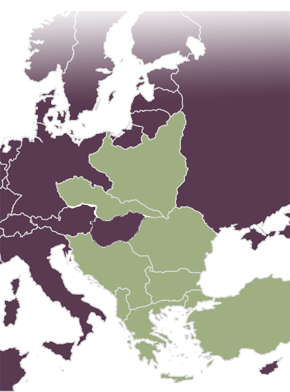The objective of the FE.P.I.B. project is to recover, fully document, and analyze the collaborations among the interwar feminist/women’s associations in the Balkan and Central European countries, and to explore the entanglement of their activities and feminist policies with the politics and diplomacy established or planned in the region during the interwar period.
More precisely, the project aims to:
a) chart transnational contacts and collaborations among the feminist/women’s associations of the Balkan and Central European countries, a topic which is currently very spotty and lacks a comprehensive bibliography of relevant sources;
b) study the activities of the Little Entente of Women (LEW) (1923-1939), women’s/feminist organizations participating in the Balkan Conferences (1930-1934), as well as of other regional collaborating associations, such as associations of university women, writers, artists etc.;
c) explore the entanglement of the policies and strategies of the transnational feminist/women’s associations or collaborations with national politics in the region, following convergences and divergences in the course of changing historical circumstances;
d) study the specific feminist ideas and policy proposals regarding the improvement of women's social, economic, and political situation in the societies of the region, and especially in Balkan societies, with particular attention given to their strategies for extending the vote to women;
e) provide a relational study of convergences and divergences among national organizations-members of the inter-Balkan associations, as well as between these groups and Central European members with regard to feminist and political agendas, and stance on projected joint activities and common strategies;
f) explore relatively the agendas and activities of the LEW, and the international feminist/women’s associations to investigate “intercrossings”;
g) explore the sociopolitical reception of the LEW and women’s membership in the Balkan Conferences in the respective member countries;
h) study the activity of the leaders and most celebrated members of the feminist associations in these transnational networks, with particular attention on the strategies these women used in the service of feminist and political goals;
i) investigate the impact of women’s political activity on the political culture of the time in the respective countries as well as on legislative changes concerning the social and political status of women.


